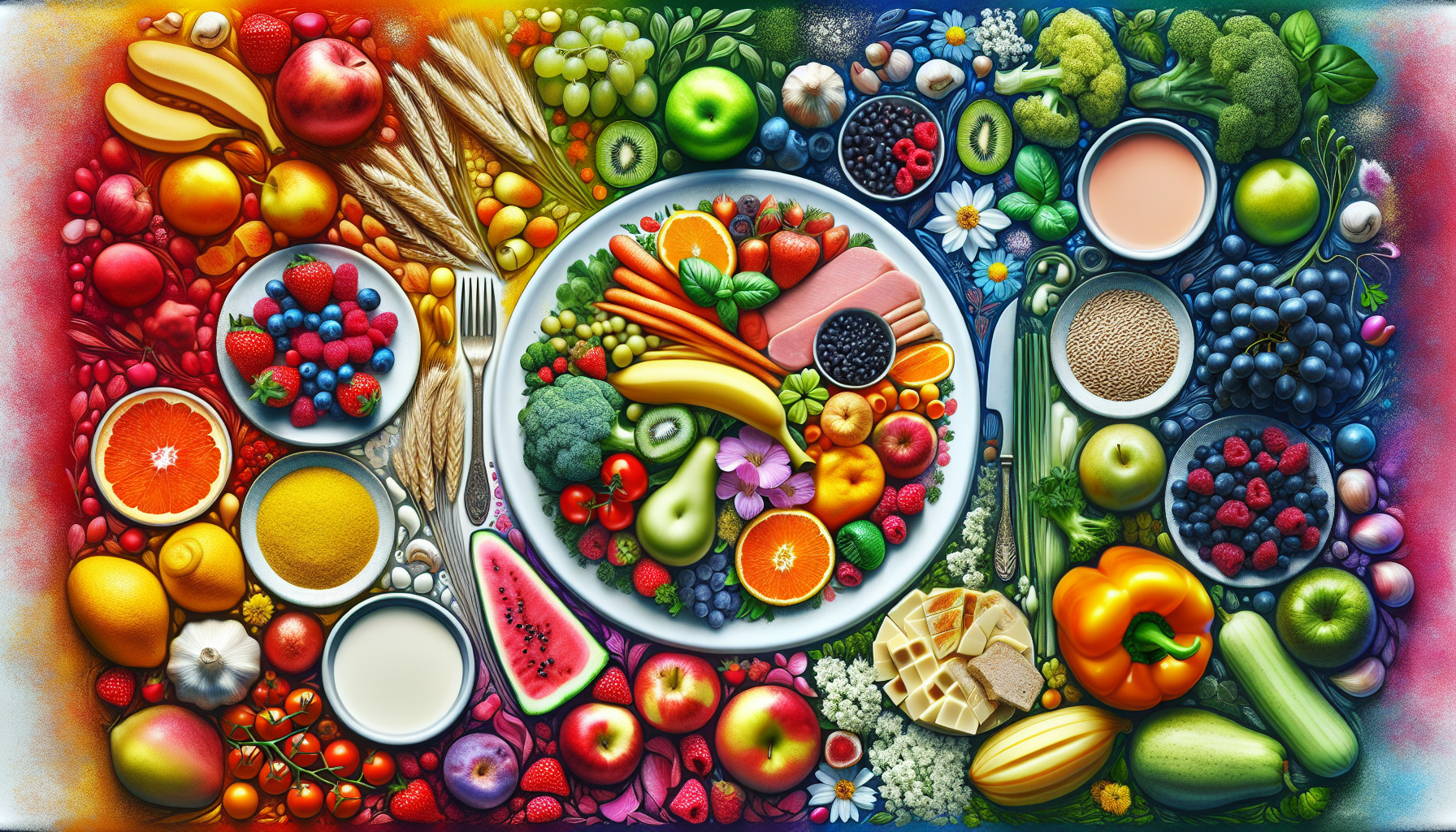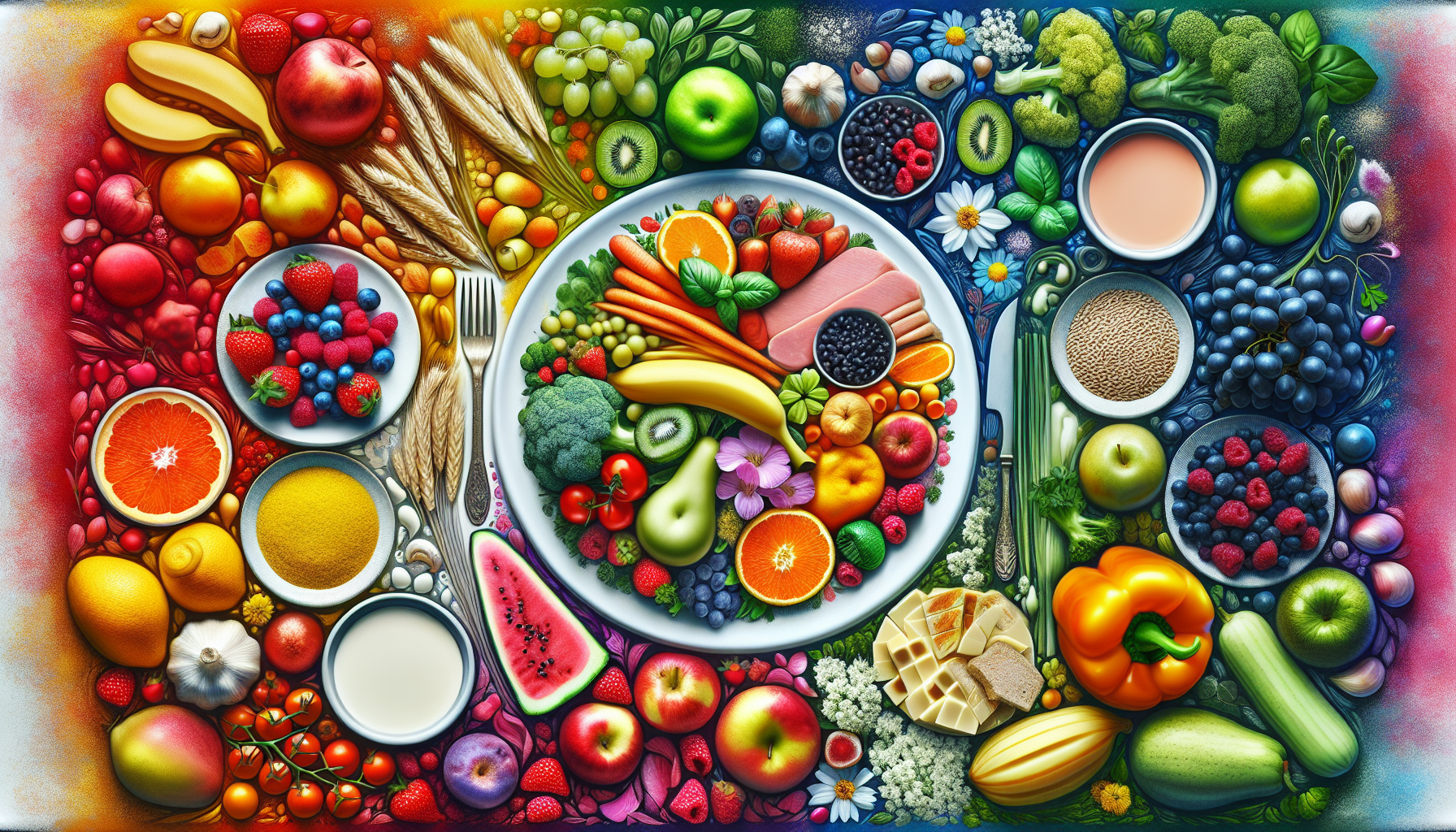If you’re searching for a diet that not only promotes a healthy lifestyle, but also focuses on reducing hypertension, look no further than the DASH Diet. Short for “Dietary Approaches to Stop Hypertension,” this eating plan has gained popularity for its ability to lower blood pressure and improve overall heart health. In this article, we will explore the ins and outs of the DASH Diet, including its detailed description, numerous benefits, potential challenges, and variations that may suit your specific needs. Additionally, delicious recipe suggestions and meal ideas will be shared, but remember, it is crucial to consult with a qualified health professional before embarking on any diet to ensure suitability for individual health conditions. Let’s dive into the world of the DASH Diet and discover a path to healthier living!

Discover the Ultimate Weight Loss Secrets Here!
What is the DASH Diet?
Overview of the DASH Diet
The DASH Diet, or Dietary Approaches to Stop Hypertension, is a dietary plan designed to lower blood pressure and promote overall heart health. It emphasizes consuming a variety of nutrient-dense foods, while limiting the intake of sodium, saturated fats, and added sugars. The DASH Diet is not a fad diet, but rather a long-term lifestyle approach recommended by healthcare professionals and backed by scientific research.
Origins of the DASH Diet
The DASH Diet was developed by the National Heart, Lung, and Blood Institute (NHLBI) as a way to combat hypertension, a condition affecting millions of people worldwide. The NHLBI conducted a series of studies in the 1990s, which found that the DASH Diet could significantly lower blood pressure within just a few weeks. Since then, it has gained recognition and is now widely recommended by healthcare professionals.
How Does the DASH Diet Work?
Principles of the DASH Diet
The DASH Diet focuses on consuming generous amounts of fruits, vegetables, whole grains, lean proteins, and low-fat dairy products. It encourages individuals to reduce their intake of sodium, unhealthy fats, and added sugars. By following the DASH Diet, you can benefit from its rich nutritional profile, which is designed to not only lower blood pressure but also improve overall heart health.
Recommended Servings and Portions
To ensure a balanced intake of nutrients, the DASH Diet provides guidelines for daily servings of different food groups. These recommendations may vary based on factors such as age, sex, and activity level. Generally, a typical DASH Diet includes:
- 6-8 servings of grains (preferably whole grains)
- 4-5 servings of vegetables
- 4-5 servings of fruits
- 2-3 servings of low-fat dairy products or dairy alternatives
- 6 or fewer ounces of lean meats, poultry, and fish
- 4-5 servings of nuts, seeds, and legumes per week
- Limited intake of fats and oils
- Limited consumption of sweets and added sugars

Click Here for Proven Fat-Burning Strategies!
Benefits of the DASH Diet
Lowering Blood Pressure
One of the primary benefits of the DASH Diet is its ability to lower blood pressure. The diet’s emphasis on fruits, vegetables, and low-fat dairy products, which are high in potassium, calcium, and magnesium, can help regulate blood pressure levels. Additionally, the reduced intake of sodium, a known contributor to hypertension, further aids in keeping blood pressure in check.
Promoting Heart Health
The DASH Diet is not only beneficial for lowering blood pressure but also promoting overall heart health. The emphasis on whole grains, lean proteins, and healthy fats, such as those found in nuts and seeds, can help reduce the risk of cardiovascular diseases. These nutrient-rich foods provide essential vitamins, minerals, and antioxidants, which support heart health and reduce inflammation.
Managing Weight
Another advantage of the DASH Diet is its potential to assist with weight management. By encouraging the consumption of whole, unprocessed foods and limiting high-calorie, low-nutrient options, the diet promotes feelings of satiety and prevents overeating. Additionally, the DASH Diet’s focus on fiber-rich foods can contribute to weight loss and maintaining a healthy body weight.
Reducing the Risk of Chronic Diseases
Following the DASH Diet can also help reduce the risk of chronic diseases. The abundance of fruits, vegetables, and whole grains provides a wide variety of vitamins, minerals, and antioxidants, which have been linked to a lower risk of conditions such as cancer, diabetes, and stroke. The DASH Diet’s overall nutrient-rich composition supports a healthy immune system and contributes to the prevention of various health issues.
Potential Challenges of the DASH Diet
Difficulty in Adherence
While the DASH Diet offers numerous health benefits, it may pose challenges for some individuals. Adhering to the recommended serving sizes and food groups can be difficult, especially for those who are used to a different dietary pattern. It may require a significant adjustment in eating habits and a commitment to planning meals and snacks in advance. However, with proper guidance and support, it is possible to overcome these challenges and incorporate the DASH Diet into a sustainable and enjoyable lifestyle.
Restrictive Nature of the Diet
The DASH Diet’s emphasis on nutrient-dense foods and limited intake of certain food groups may be perceived as restrictive by some individuals. The diet recommends reducing the consumption of high-sodium processed foods, sugary beverages, and unhealthy fats, which are commonly found in many modern diets. It may require careful meal planning and creativity to ensure a diverse and satisfying range of food options while still following the principles of the DASH Diet.
Possible Nutrient Deficiencies
As with any specific dietary plan, there is a possibility of nutrient deficiencies if the DASH Diet is not well-balanced. For example, individuals following a vegetarian or vegan variation of the DASH Diet may need to pay extra attention to ensure an adequate intake of nutrients such as iron, vitamin B12, and omega-3 fatty acids. Consulting with a healthcare professional or dietitian can help address and prevent any potential nutrient deficiencies.

Specific Variations of the DASH Diet
Standard DASH Diet
The standard DASH Diet is based on the recommended daily servings and portions mentioned earlier. It focuses on a balanced intake of fruits, vegetables, whole grains, lean proteins, and low-fat dairy products, while limiting sodium, unhealthy fats, and added sugars.
Low-Sodium DASH Diet
The low-sodium DASH Diet is particularly beneficial for individuals who have hypertension or are sensitive to sodium. It further restricts sodium intake, typically around 1500-2300 milligrams per day, compared to the standard DASH Diet that allows up to 2300-2400 milligrams.
Vegetarian DASH Diet
For individuals who prefer a plant-based diet, the vegetarian DASH Diet offers a suitable variation. This version emphasizes plant foods such as fruits, vegetables, whole grains, legumes, nuts, and seeds, while excluding meat and poultry. It ensures a well-rounded intake of essential nutrients while still aligning with the principles of the DASH Diet.
Sample Recipes and Meals
Breakfast Ideas
- Whole grain oatmeal topped with fresh berries and a sprinkle of nuts
- Vegetable omelet made with egg whites, spinach, tomatoes, and mushrooms
- Greek yogurt with sliced bananas and a drizzle of honey
Lunch and Dinner Recipes
- Grilled chicken breast with a side of steamed broccoli and quinoa
- Baked salmon with roasted asparagus and a mixed green salad
- Lentil and vegetable stir-fry with brown rice
Snack Options
- Carrot sticks with hummus
- Apple slices with almond butter
- Greek yogurt with a handful of mixed nuts
Dessert Recipes
- Baked apples with cinnamon and a dollop of Greek yogurt
- Berry parfait made with low-fat yogurt and granola
- Dark chocolate-covered strawberries

Precautions and Considerations
Consultation with a Healthcare Professional
Before starting any dietary plan, including the DASH Diet, it is crucial to consult with a qualified healthcare professional. They can assess individual health needs, provide personalized guidance, and ensure the diet is suitable, especially for those with underlying medical conditions or specific dietary requirements.
Individualization of the Diet Plan
Every individual is unique, and their nutritional needs may vary. It is essential to customize the DASH Diet plan to meet specific requirements, taking into account factors such as age, sex, activity level, and overall health. A healthcare professional or registered dietitian can help tailor the diet plan accordingly.
Monitoring Blood Pressure and Health Markers
Regular monitoring of blood pressure and other health markers is essential for individuals following the DASH Diet. Tracking progress and making necessary adjustments can help ensure that the diet is effectively managing blood pressure and promoting overall health. Individuals should work in partnership with their healthcare team to monitor and address any changes that may occur.
Conclusion
Importance of Professional Guidance
While the DASH Diet offers numerous benefits, it is crucial to seek professional guidance before adopting any specific dietary plan. A qualified healthcare professional, such as a nutritionist or doctor, can provide personalized advice, address individual needs, and monitor progress to ensure the diet is safe and effective.
Summary of the DASH Diet Benefits and Recommendations
The DASH Diet is a scientifically-backed dietary approach designed to lower blood pressure, promote heart health, manage weight, and reduce the risk of chronic diseases. By emphasizing nutrient-dense foods and limiting sodium, unhealthy fats, and added sugars, the DASH Diet offers a well-rounded approach to overall wellness. However, it is essential to personalize the diet plan, seek professional guidance, and monitor health markers to ensure its suitability and effectiveness for individual needs. Remember, consult a healthcare professional before making any significant changes to your diet or lifestyle.

